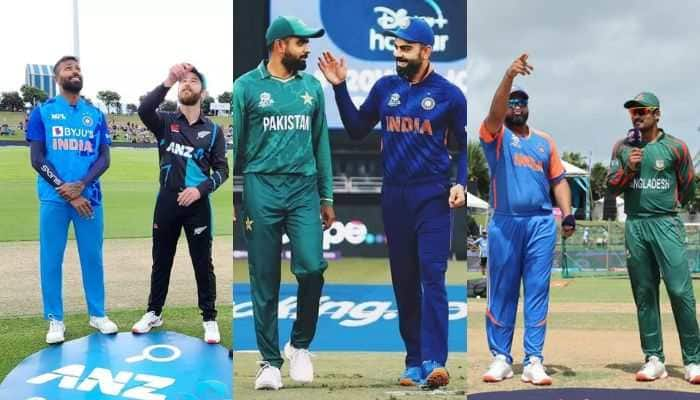Third wave inevitable, warns Principal Scientific Adviser, stresses on following COVID-appropriate behaviour
Principal Scientific Adviser K Vijay Raghavan said that a combination of less cautionary measures, less immunity in the population from the first wave is driving the second wave, which has killed thousands and infected lakhs of people across the country.
- Raghavan said the virus emerged in 2019 in Wuhan and at that time it was generalist that could infect many mammal species
- . The first phase saw two mutations every month, he said.
Trending Photos
) Image courtesy: PTI
Image courtesy: PTI New Delhi: Principal Scientific Adviser K Vijay Raghavan has cautioned that people should be prepared to face new waves as the SARS-CoV2 evolves and mutates further. He said although vaccines are efficacious against new mutations like the UK one and the double mutant, surveillance and vaccine updates are needed as the virus mutates further.
During a press briefing on Wednesday, the country's top scientific officer said a combination of less cautionary measures, less immunity in the population from the first wave is driving the second wave, which has killed thousands and infected lakhs of people across the country. He, therefore, said that it is necessary to be prepared with changes in strategy in terms of vaccine and other kinds of situation.
Elaborating on the evolution of SARS-CoV2 and its increasing lethality, Raghavan said the virus emerged in 2019 in Wuhan and at that time it was generalist that could infect many mammal species. The first phase saw two mutations every month, he said.
The second phase which started in October 2020 saw dramatic changes and new variants like the UK variant coming to the fore, he said, adding "In early 2021, a very large number of people all over the world had been infected. As the immunity increases, the virus does not have the opportunity to grow."
"Phase three is inevitable given the higher levels of circulating virus, but it is not clear on what time-scale this phase three will occur. We should be prepared for new waves," he said, adding that distancing can exponentially bring down the spread.
"The virus can only go from human to human," he said, stressing on following COVID-appropriate behaviour.
Raghavan said that many factors contributed to this second wave and variants are one of the factors. The first wave peaked in September last year and cases started falling substantially, he said, adding that the first wave declined because of two factors.
He further said, "As infections rose, so did immunity among those infected. As cautionary steps at everyone at this level, there was less opportunity for the infections to spread. A combination of the standing level of immunity in the population and cautionary steps halted the spread of the first wave."
But as the cautionary steps declined, new opportunities for infection arose and the level of immunity among the population is often not enough to stop the infection spread.
"Many people get infected until they reach a new immunity threshold. Such a second wave is typically smaller than the first. Such a second wave was expected. However, multiple parameters can change and add up to the second wave, much larger than the first. "(But) Such a larger second wave with the ferocity we are seeing was not predicted," he said.
As many as 12 states, including Maharashtra, Karnataka, Kerala, and Uttar Pradesh, have more than 1 lakh active COVID cases, while Karnataka, Kerala, Tamil Nadu, West Bengal, Rajasthan, and Bihar are among the states that show an increasing trend in daily cases, said Lav Agarwal, the joint secretary in the Health Ministry, during the media briefing.
On vaccination, he said the total doses administered till now was 16.05 crore, adding that while 12.31 crore people above the age of 45 years have been vaccinated, the number is at 1.58 crore among healthcare workers. Around 2.09 crore frontline workers have also been vaccinated, while 6.71 lakh people between 18 years to 44 years have got their jabs so far, he added.
(With Agency Inputs)
Stay informed on all the latest news, real-time breaking news updates, and follow all the important headlines in india news and world News on Zee News.
Live Tv







)
)
)
)
)
)
)
)
)
)
